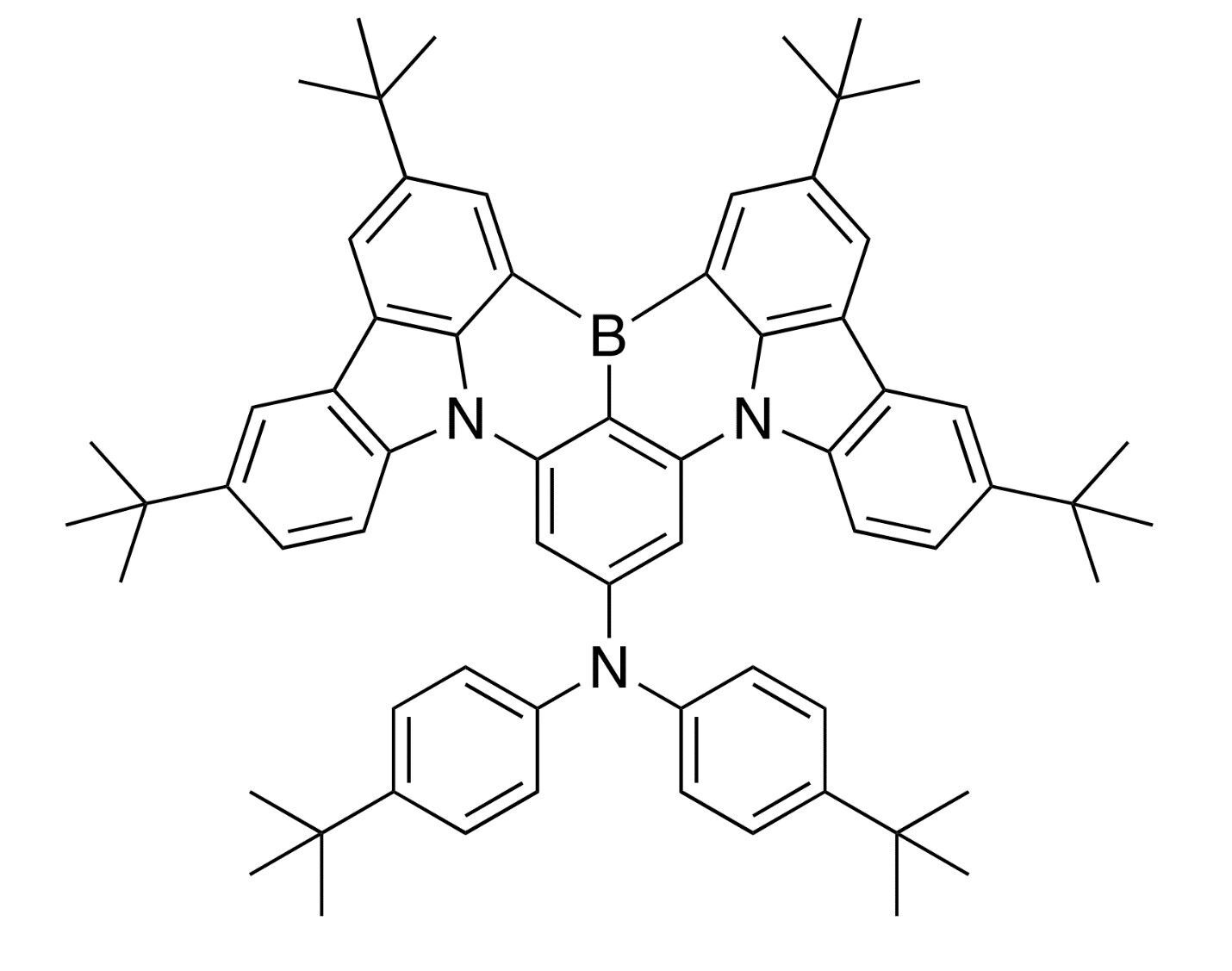tDPA-DtCzB
Product Description
tDPA-DtCzB, known chemically as 4-(4',4'-di-tert-butyldiphenylamine)-2,6-bis(9H-carbazol-9-yl) boron, is a specialized organic compound utilized in advanced materials science. Its unique structure incorporates di-tert-butyl groups attached to diphenylamine and bis(carbazol-9-yl) moieties linked via a central boron atom. This arrangement confers upon tDPA-DtCzB properties such as high thermal stability and excellent electron transport capabilities. These characteristics make it particularly valuable in the development of organic light-emitting diodes (OLEDs), where it serves as a hole transport material, facilitating efficient charge carrier movement. Additionally, its chemical stability and compatibility with various substrates enhance its utility in fabricating durable electronic devices.
Application
tDPA-DtCzB finds application in the manufacturing of OLED displays due to its role in enhancing device efficiency and longevity. Its ability to transport holes effectively contributes to brighter and more energy-efficient displays. Furthermore, it is utilized in research settings for developing next-generation electronic materials, owing to its thermal stability and electron transport properties. In the realm of organic electronics, tDPA-DtCzB is explored for creating high-performance devices that demand durability and efficiency.
Articles:
- Achieving highly efficient narrowband sky-blue electroluminescence with alleviated efficiency roll-off by molecular-structure regulation and device-configuration optimization
Publication Date: 12 Sep 2022
Xianju Yan, Zhiqiang Li, Qingyang Wang, Yupei Qu, Yincai Xu and Yue Wang
https://doi.org/10.1039/D2TC03249J
- Organoboron-based multiple-resonance emitters: synthesis, structure–property correlations, and prospects
Publication Date: 3rd January 2024
Masashi Mamada, Masahiro Hayakawa, Junki Ochi and Takuji Hatakeyama
